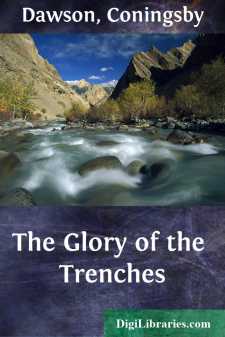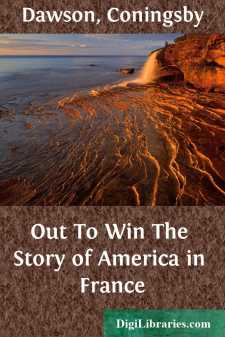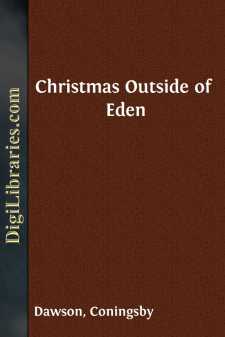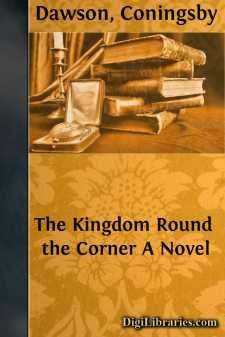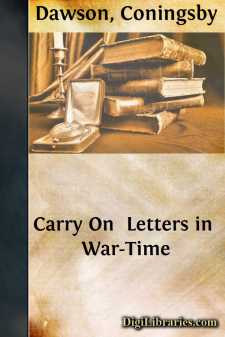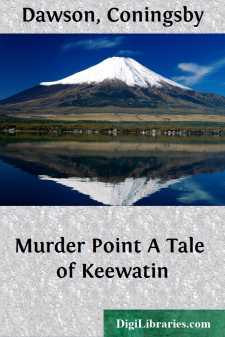Categories
- Antiques & Collectibles 13
- Architecture 36
- Art 48
- Bibles 22
- Biography & Autobiography 813
- Body, Mind & Spirit 142
- Business & Economics 28
- Children's Books 15
- Children's Fiction 12
- Computers 4
- Cooking 94
- Crafts & Hobbies 4
- Drama 346
- Education 46
- Family & Relationships 57
- Fiction 11828
- Games 19
- Gardening 17
- Health & Fitness 34
- History 1377
- House & Home 1
- Humor 147
- Juvenile Fiction 1873
- Juvenile Nonfiction 202
- Language Arts & Disciplines 88
- Law 16
- Literary Collections 686
- Literary Criticism 179
- Mathematics 13
- Medical 41
- Music 40
- Nature 179
- Non-Classifiable 1768
- Performing Arts 7
- Periodicals 1453
- Philosophy 64
- Photography 2
- Poetry 896
- Political Science 203
- Psychology 42
- Reference 154
- Religion 513
- Science 126
- Self-Help 84
- Social Science 81
- Sports & Recreation 34
- Study Aids 3
- Technology & Engineering 59
- Transportation 23
- Travel 463
- True Crime 29
Coningsby Dawson
Coningsby Dawson (1883-1959) was a British-Canadian author known for his war-time novels and essays. He gained prominence with works like "Carry On: Letters in War-Time" (1917) and "The Glory of the Trenches" (1918), which provided vivid, firsthand accounts of World War I experiences. His writing often reflected his deep Christian faith and his commitment to depicting the human side of war.
Author's Books:
Sort by:
by:
Coningsby Dawson
HOW THIS BOOK WAS WRITTEN In my book, The Father of a Soldier, I have already stated the conditions under which this book of my son's was produced. He was wounded in the end of June, 1917, in the fierce struggle before Lens. He was at once removed to a base-hospital, and later on to a military hospital in London. There was grave danger of amputation of the right arm, but this was happily avoided....
more...
by:
Coningsby Dawson
I The American Troops have set words to one of their bugle calls. These words are indicative of their spirit—of the calculated determination with which they have faced up to their adventure: an adventure unparalleled for magnitude in the history of their nation. They fall in in two ranks. They tell off from the right in fours. "Move to the right in fours. Quick March," comes the order. The...
more...
by:
Coningsby Dawson
I This is the story the robins tell as they huddle beneath the holly on the Eve of Christmas. They have told it every Christmas Eve since the world started. They commenced telling it long before Christ was born, for their memory goes further back than men's. The Christmas which they celebrate began just outside of Eden, within sight of its gold-locked doors. The robins have only two stories: one...
more...
by:
Coningsby Dawson
CHAPTER THE FIRST AN ALTERED WORLD I It was on a blustering March morning in 1919 that Tabs regained his freedom. His last five months had been spent among doctors, having sundry bullets extracted from his legs. He walked with a limp which was not too perceptible unless he grew tired. His emotions were similar to those of a man newly released from gaol: he felt dazed, vaguely happy and a little lost....
more...
by:
Coningsby Dawson
INTRODUCTION The letters in this volume were not written for publication. They are intimate and personal in a high degree. They would not now be published by those to whom they are addressed, had they not come to feel that the spirit and temper of the writer might do something to strengthen and invigorate those who, like himself, are called on to make great sacrifices for high causes and solemn duties....
more...
by:
Coningsby Dawson
CHAPTER I JOHN GRANGER OF MURDER POINT John Granger, agent on the Last Chance River in the interests of Garnier, Parwin, and Wrath, independent traders in the territory of Keewatin, sat alone in his store at Murder Point. He sat upon an upturned box, with an empty pipe between his lips. In the middle of the room stood an iron stove which blazed red hot; through the single window, toward which he faced,...
more...


